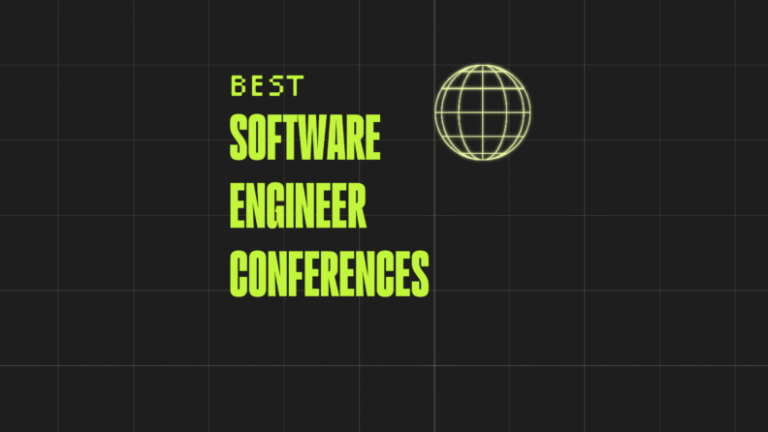Over the past two decades, hundreds of organizations worldwide have adopted hackathons to boost productivity, develop new ideas, and even launch successful startups. But many beginners still wonder about hackathon meaning and why these events are so impactful.
Hackathons have become a powerful tool for driving innovation and problem-solving across industries, blending creativity, teamwork, and technology in a fast-paced environment.
So, what is a hackathon event? At its core, a hackathon is an intensive, time-bound gathering where participants—often developers, designers, and business minds—collaborate to create innovative solutions to specific challenges.
The competitive aspect, combined with strict deadlines, pushes teams to think outside the box and deliver tangible results quickly.
For those asking, what is a hackathon in business, companies frequently organize these events to foster innovation, engage talent, and find fresh approaches to real-world problems.
Similarly, what is hackathon competition? It’s a challenge-driven platform where participants compete to build prototypes, apps, or solutions, often judged by experts or industry leaders.
Hackathons are more than just coding marathons—they are opportunities to learn, network, showcase skills, and turn groundbreaking ideas into actionable solutions that can shape the future of technology and business.
Read also – 20 Best Developer Conferences to Join in 2025
What is a hackathon?
A hackathon is an event that brings experts together to collaborate on solving a specific problem, often within a limited timeframe.
While many hackathons focus on computer programming and IT, other industries have embraced the concept, leading to HR hackathons, music hackathons, and more. Understanding hackathon meaning is essential to grasp why these events are so popular.
So, what is a hackathon event? It’s essentially a “marathon for hackers,” where hackers refer to exploratory programmers or professionals who rapidly build and test solutions.
The first hackathon took place in 1999, hosted by OpenBSD, bringing together developers to work on cryptographic software.
What is a hackathon in business? Companies and organizations use hackathons to find high-quality, innovative solutions while identifying talent, potential partnerships, or new hires.
These events are often competitive, giving participants a chance to showcase their skills under pressure. This competitive format is what defines hackathon competition, where multiple teams present their solutions, and a jury awards the best idea, sometimes leading to contracts or future collaborations.
Hackathons have evolved into powerful platforms for innovation, networking, and turning ideas into real-world solutions.
Why are hackathons so popular?
The success of hackathons lies in the creative freedom they provide, allowing participants to explore solutions without being bound by strict corporate rules or rigid methodologies.
This unique setting gives true meaning to the term hackathon meaning, as it fosters innovation through flexibility and collaboration.
So, what is a hackathon event in this context? It’s a time-limited, competition-driven environment where tech experts and creative minds work intensively to develop solutions. While there’s a deadline, organizers rarely impose strict frameworks, enabling participants to think outside the box.
From a corporate perspective, what is a hackathon in business? It’s a platform where companies can access fresh ideas, discover top talent, and potentially secure innovative solutions for real-world challenges.
The hackathon competition format also benefits participants, offering networking opportunities, skill enhancement, and exposure to recruiters—all in a dynamic, relaxing, and highly productive environment designed to fuel breakthroughs.
Read also – Hackathon Sponsorship: Top Tips for Hackathon Organizers
How do hackathons work?
How does a hackathon work? Hackathons are usually theme-based. An organizer chooses a theme that aligns with its business goals and appeals to the right teams, sponsors, and partners. After that, they:
- Set up judging criteria and pick a hackathon jury.
- Decide on the prizes.
- Pick the right venue (it’s also possible to organize a virtual hackathon).
- Arrange food and drinks if the hackathon event is offline.
- Set up equipment for offline events and arrange the necessary software (like Slack, Zoom, Crowdcast, etc.) or a platform for the online version.
To bring as many participants to the hackathon as possible, the organizing party can market the upcoming event with press releases, social media posts, email campaigns, and paid ads. The host can also contact incubators, accelerators as well as teaching and administrative staff at universities.
For participants, both online and offline hackathon structure is usually straightforward. Even when newcomers don’t have a clear idea of what happens at a hackathon, they get used to the format quickly.
In short, hackathons work by bringing talent together to work on a mutual problem. The organizer arranges a helpful, relaxing, and productive environment for effective collaboration and competition. Meanwhile, participants take advantage of the format to find solutions, learn, network, and discover better career opportunities.
What do you do at a hackathon?
The primary goal of a hackathon is to develop an effective solution to a specific problem within a limited timeframe. Participants—whether developers, designers, engineers, or other experts—focus on brainstorming, building prototypes, and presenting innovative ideas that address the given challenge.
This is the true essence of hackathon meaning, as it combines collaboration, creativity, and problem-solving under pressure.
So, what is a hackathon event from an organizational perspective? While participants compete to create impactful solutions, organizers and sponsors focus on facilitating collaboration, managing the event’s logistics, and networking with potential partners or talent.
In many cases, what is a hackathon in business translates to a win-win scenario where companies gain access to groundbreaking ideas while building connections with skilled professionals.
The hackathon competition format ensures that solutions are tested, judged, and rewarded, often leading to real-world applications, partnerships, or even recruitment opportunities beyond the event itself.
How long do hackathons last?
Hackathons are typically fast-paced events lasting anywhere from 24 to 72 hours, designed to push creativity and innovation under time constraints.
Understanding hackathon meaning involves recognizing this unique structure, where preparation and teamwork play vital roles.
So, what is a hackathon event in terms of organization? Teams that register beforehand often get about a week to prepare, assigning roles and responsibilities for each part of the project. This allows for a smoother workflow once the event begins.
However, many participants attend individually, forming new teams during the first hours of the event. In these cases, responsibilities are assigned on the spot, fostering spontaneous collaboration.
From a corporate perspective, what is a hackathon in business? It’s an opportunity to observe how experts solve problems under pressure, either in pre-formed teams or ad-hoc collaborations.
This hackathon competition format challenges participants to adapt quickly, demonstrate teamwork, and deliver innovative solutions within tight deadlines.
Types of hackathons
While the main elements of hackathons are similar, these events come in many shapes and sizes. The most common types of hackathons are:
1. Internal hackathons
An internal hackathon is a hackathon organized by the company for its employees. The goal of such a hackathon is brainstorming, team building, inspiring intrapreneurship, increasing employee engagement, and streamlining awareness.
A hackathon can help an organization understand its talent better while gaining an opportunity to scale. Employees enjoy the freedom of the creative environment and start thinking outside the box.
2. External hackathons
For an external hackathon, an organization works with both internal and external experts. These hackathons allow companies to find new talent, speed up product development, harvest new ideas, and much more.
External hackathons are usually bigger and more expensive than internal events. However, the outcomes tend to carry significant value.
3. Coding hackathons
Just like the very first OpenBSD hackathon, coding competitions involve coding experts getting together and creating working software during a set period of time. Such hackathons can last longer than the average 24 – 72 hours and result in one or several finished products.
4. Industry hackathons
Not all hackathons are arranged by IT companies. Organizations across many industries run different types of hackathons. The most popular examples of industry-specific hackathons are Music Hack Day and Science Hack Day.
Read also – Top 10 Sustainability Hackathon Ideas for your Company in 2025
5. Offline, online, and hybrid hackathons
Hackathons can be arranged in three formats:
- Offline hackathon: An offline hackathon is the traditional format. The event takes place in a venue where all participants interact with each other and organizers personally.
- Online hackathons: An online (or virtual) hackathon is an excellent way to work with talented experts around the globe. The entire event is arranged online. It can be done through a special platform or by using different collaboration and communication tools like Asana, Slack, Zoom, Skype, etc. Internal online hackathons are great for companies that have remote employees in different cities, states, and countries. External online hackathons remove geographical and financial (e.g. travel cost) limitations.
- Hybrid hackathons: Hybrid hackathons are a combination of online and offline events. Participants can choose the most suitable way to join this type of hackathon. If they don’t have an opportunity to participate in the event physically, they can do it online. Hybrid hackathons cater to larger audiences, allowing organizations to leverage the benefits of both virtual and in-person events.
Common hackathon structure
The typical hackathon structure includes:
- Introductions (meet-and-greet).
- Overview of the event (organizers explain hackathon rules and regulations and expectations).
- Project pitches (participants can pitch ideas and form teams).
- Hacking (collaboration on the project in a team format).
- Presenting a finished product or unfinished work (this happens more often due to time constraints).
- The jury decides who the winners are and hands out prizes.
At the end of the event, the organizer usually arranges a closing program that helps participants find networking opportunities and relax after a long and productive event.
Once the hackathon is over, the company follows up with participants, asking for feedback. This information can be valuable for arranging hackathons in the future. Following up also allows organizers and participants to keep in touch for further collaboration opportunities.
Common Hackathon rules and regulations
To ensure a productive environment, each company designs its own set of hackathon rules and regulations that include the code of conduct. The most common points they touch upon include:
- The number of team members.
- A welcoming environment for all minorities.
- The good spirit of the competition.
- Tools that teams can use.
- Time limits.
- The ability to resubmit projects to other hackathons and using previous work on the current hackathon.
- Reporting procedures for violating the code of conduct.
It’s also highly important to develop clear judging criteria. Some criteria can be:
- Business value — does the solution have the potential to earn money?
- Impact — can the solution make an impact on the industry, drive innovation, streamline development, etc.?
- Realistic — how realistic is the product? Will it be easy to execute?
- Design — is the product user-friendly and easy to understand?
- Completion — did the team present a completed project, or is it unfinished?
An example would look like this:
“The project will be judged based on the following criteria:
- Business value — 20%
- Design — 30%
- Impact — 30%
- Completion — 20%”
Clear judging criteria make it easy for participants and the panel of judges to keep the focus on the right elements of the project.
Read also –10 Best Software Engineering Conferences in 2025
Hackathon benefits for companies and participants
The rising popularity of hackathons is caused by an impressive variety of benefits for both organizers and participants.
For companies:
- Healthy collaborative approach — breakthroughs are rarely made by a single mind. They are a team effort. By arranging hackathons, companies inspire a collaborative approach, allowing employees and external talent to come up with something truly useful.
- Diversification — an external hackfest (kw from Clearscope) (especially when conducted online) creates a highly diverse pool of participants, bringing brand-new opinions into the picture. In many cases, cultural and demographic diversity is the key to generating innovative ideas.
- New products — new product development is always complex and costly for companies. Hackathons inspire experts to source new technologies and create innovative products within a short period of time.
- Recruitment opportunities — during a hackathon, companies can watch young talent at work and find new members for their teams.
- Branding — hackathons are a brand awareness opportunity for hosts. These events often create a lot of buzz, keeping the brand on top of the target audience’s minds.
For participants:
- Opportunity to learn something new — working with other experts on the same software projects turns a hackathon into a significant learning experience.
- Career opportunities — since many companies and sponsors attend hackathons, participants can land a new contract. For internal hackathons, excellent performance can push a participant up the career ladder. For new coders, participating in a hackathon can be a great career opportunity. High school and college students get a chance to start their careers early.
- Challenge — a hackathon can bring specialists out of their comfort zone and push them to meet people and make new professional discoveries. Collaborating under pressure can help participants examine their abilities from a new angle.
- Breakthroughs — while not all hackathons result in real breakthroughs, they create an excellent environment for them. Each new hackathon gives participants a chance to become part of something special.
Besides being highly beneficial for companies and participants, hackathons are fun and fulfilling. They are an excellent way for experts and managers to spend time together and work toward a common goal in a brand-new environment.
FAQs
What is the meaning of a hackathon?
A hackathon is an event where individuals or teams collaborate intensively, usually within 24 to 72 hours, to create innovative solutions to specific challenges, often related to technology or business problems.
What is a hackathon event?
A hackathon event is a time-bound, competition-driven gathering where participants brainstorm, design, and build prototypes or solutions. It encourages creativity, teamwork, and rapid problem-solving under pressure.
What is a hackathon in business?
In a business context, hackathons help companies discover fresh ideas, test innovative solutions, identify new talent, and build partnerships. They are often used for product development or solving internal challenges.
What is hackathon competition format?
Hackathon competitions involve multiple teams or individuals presenting solutions to a set problem. Judges evaluate the projects based on creativity, functionality, and feasibility, awarding prizes or potential collaborations.
Who can participate in a hackathon?
Hackathons are open to a wide range of participants, including developers, designers, engineers, entrepreneurs, marketers, and students, regardless of experience level, fostering a diverse and collaborative environment.
Conclusion
Hackathons are powerful platforms for innovation, problem-solving, and collaboration, bringing together creative minds to develop impactful solutions under time constraints.
Whether in tech or business, these events foster learning, networking, and opportunities for participants while helping organizations access fresh ideas, talent, and potential partnerships that can drive real-world change.





